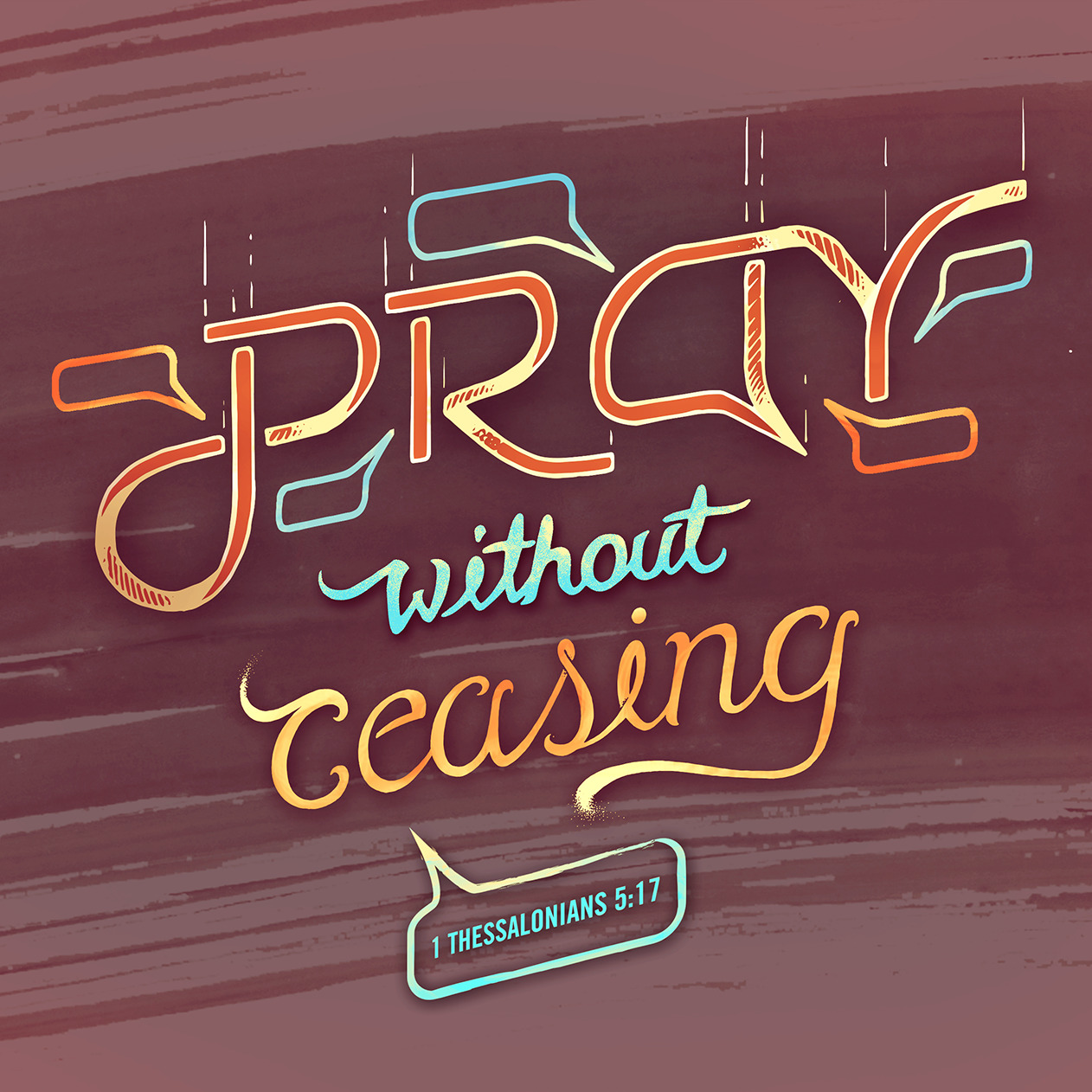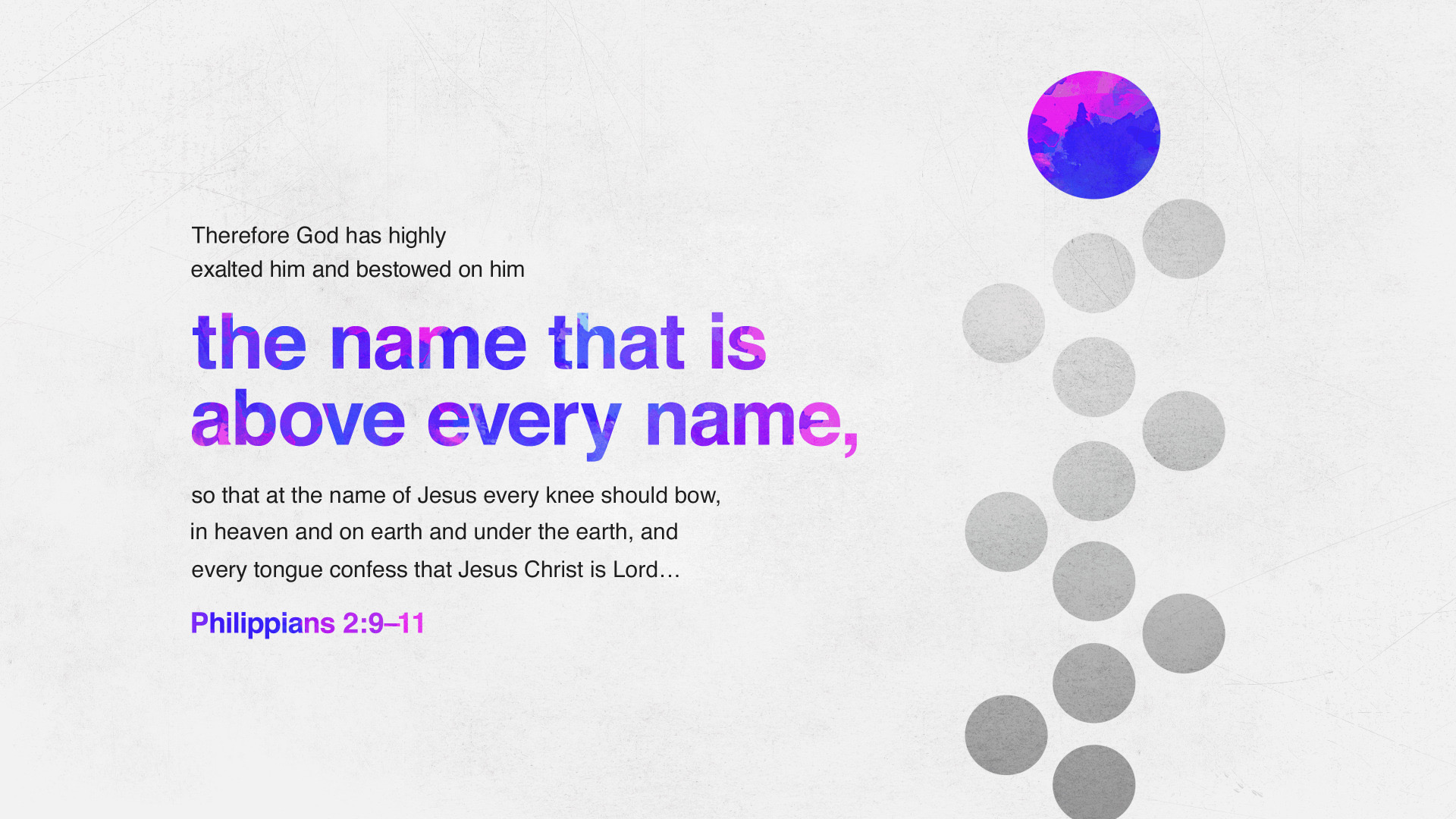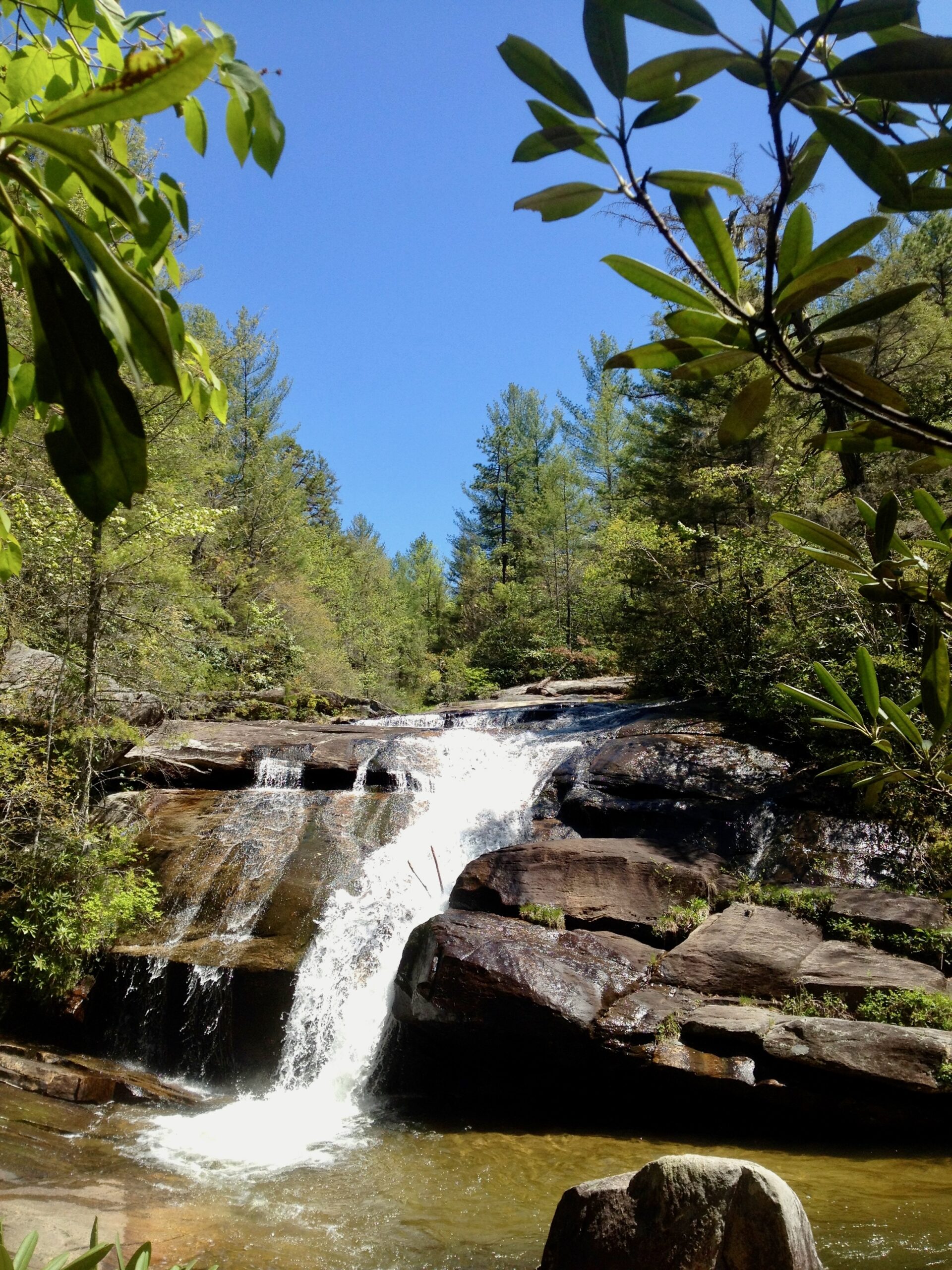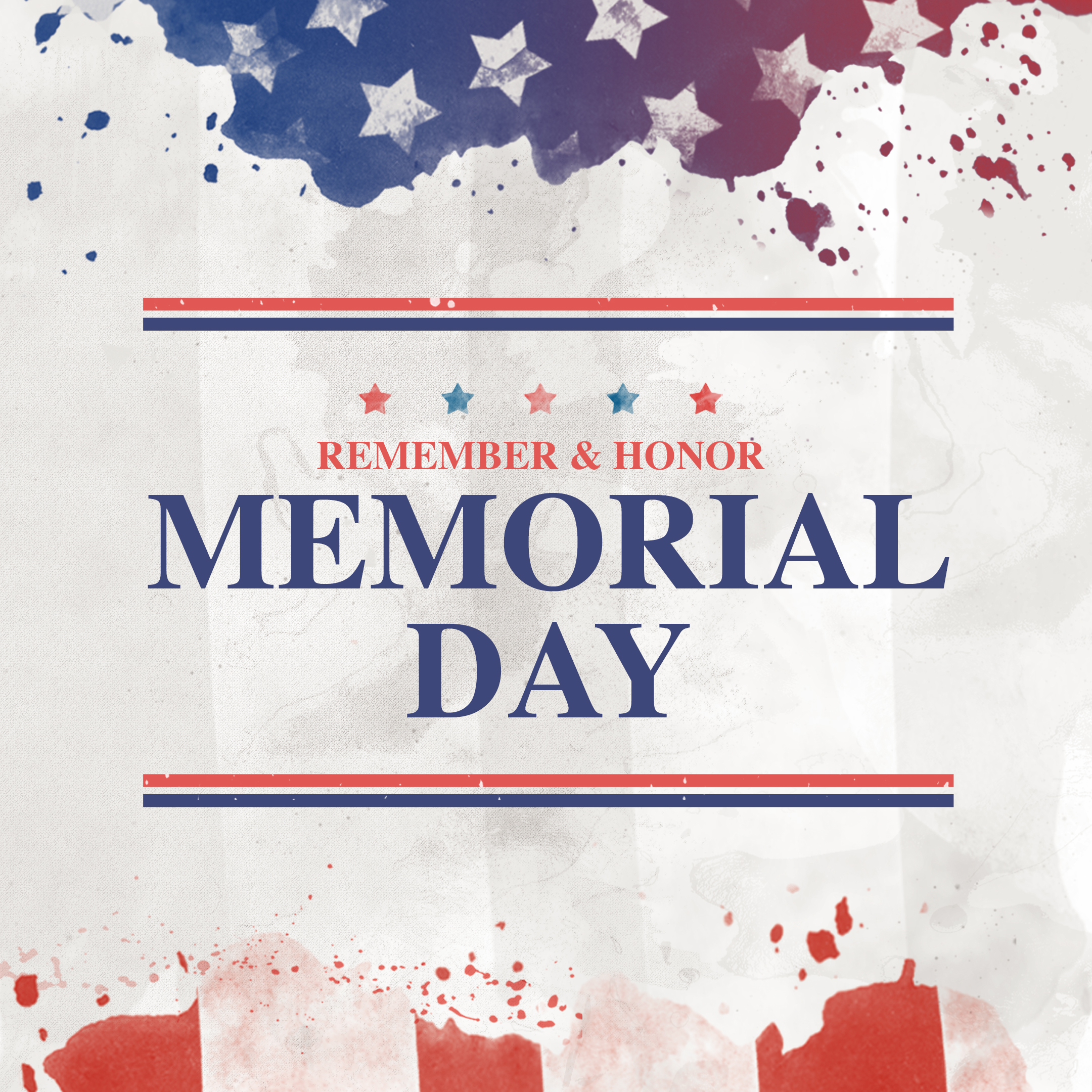
July 2025 Pastor’s Corner — Joy in the Mess

Happiness is a firecracker sitting on my headboard
Happiness was never mine to hold
Careful child, light the fuse and get away
‘Cause happiness throws a shower of sparks
— The Fray, “Happiness”
I think this is because we’ve confused and conflated happiness and joy. Happiness is a fleeting emotional experience. Joy is a deeper state of being. We pursue happiness because it’s an easier objective, something that seems like it’s more within our control. But what we are actually yearning for is joy. Joy is one of the fruit of the Spirit (Galatians 5:22). While it certainly has an emotional component, joy is something that persists no matter our circumstances. No matter how messy life gets, joy persists in our hearts and our souls. It doesn’t ignore the sad, the bad, the hurtful, the wrongs of life but recognizes that there’s more to this life and to our faith than what is happening in this moment or season.
This summer we’re working our way through the book of Philippians. It’s a letter written to encourage a group of Christians to find joy in the midst of the messiness of their lives and their circumstances. It was written by a guy who was in a pretty messy place in his life at the time himself. And yet, the resounding theme is rejoice, rejoice, rejoice.
Not a “pretend the messiness doesn’t exist” naïve joy, but a joy that is grounded in something deeper than our life circumstances. A joy grounded in our salvation in Jesus Christ. A joy that knows there is nothing we will go through or endure that our Savior did not endure Himself. A joy that knows that there is no greater joy than to know and be known by Christ as deeply and thoroughly as possible.
Happiness says that it will come when the mess gets cleaned up. Joy comes in the midst of the mess. As we said above, joy is a fruit of the Spirit. As we pursue Jesus Christ, the seeds of joy are planted in our soul. As we grow in grace and truth, faith grows those seeds so that even in the messiness, when life goes sideways, through the hurt and pain, a joy invincible is nurtured and developed. This kind of joy doesn’t appear magically overnight, but rather through a lifetime of faithful trust in Jesus Christ.
There’s nothing wrong with being happy, as long as we recognize that happiness isn’t an end unto itself. Happiness understood rightly should be an expression of the joy we have in our salvation. May God nurture a joy in your soul that surpasses understanding, a joy born of gratitude for our salvation in Jesus Christ and the fruit of the work of the Holy Spirit in our hearts and souls.
Rejoice in the Lord always; again I will say, rejoice. Let your reasonableness be known to everyone. The Lord is at hand; do not be anxious about anything, but in everything by prayer and supplication with thanksgiving let your requests be made known to God. And the peace of God, which surpasses all understanding, will guard your hearts and your minds in Christ Jesus. — Phil. 4:4-7
Blessings,
Rev. David Garrison
Read more...

News & Announcements for Sunday, June 29, 2025

JOIN US FOR SUNDAY SCHOOL
If you’re looking for an opportunity to grow as a disciple of Jesus Christ, we encourage you to join us Sunday mornings for a intergenerational Sunday school class, from 9:30-10:30. We look forward to seeing you!
MIDWEEK PRAYER – WEDNESDAYS @ Noon
Please join us on Wednesdays at noon for a time of prayer in the sanctuary as we bring our needs before our loving God.
GET IN SHAPE CLASS –SUNDAYS, 9:30AM
No, not physical shape – spiritual S.H.A.P.E.! God has given every believer gifts and shaped us for ministry and service. If you’re asking questions like, What are my spiritual gifts? How has God shaped me for service and ministry? Where do I “plug in?” What is God calling me to do in this phase of my life? Then this class is for you! We encourage every member of Northminster to join us for this 4-week Sunday School class, concluding next Sunday.
COLLEGE & CAREER BIBLE STUDY – TONIGHT, 6PM
Join us for a weekly(ish) bible study for College & Career Young Adults this summer. We meet at the Garrisons for dinner (probably something fancy, like pizza) and then spend some time digging into God’s Word. This is a place and time you can bring your questions and whatnot as well. All young adults, ages 18-29(ish) are welcome.
MISSION FOCUS FOR JUNE: DAYSTAR JUNIOR SCHOOL
Our mission focus for the month of June is Daystar Junior School in Uganda. Opened in 2015, this school is for children ages 3 to 15 years and is located in the slum areas of Kirombe Uganda, East Africa. Donations from Northminster have helped to purchase uniforms for the students, wood for new desks, and build a 3-floor classroom building. You may make a donation to this special ministry by specifying Daystaron your check memo line.
HELPING HANDS OFFERING – THIS MORNING
Each 5th Sunday, any undesignated offerings placed in the collection plates go to Helping Hands, a ministry of churches in the Madison Heights-Elon area of Amherst County to help residents in need. It is administered through Madison Heights Baptist Church. Thank you for helping us meet the needs of those in our community!
Read more...

News & Announcements for Sunday, June 22, 2025

JOIN US FOR SUNDAY SCHOOL
If you’re looking for an opportunity to grow as a disciple of Jesus Christ, we encourage you to join us Sunday mornings for a intergenerational Sunday school class, from 9:30-10:30. We look forward to seeing you!
MIDWEEK PRAYER – WEDNESDAYS @ Noon
Please join us on Wednesdays at noon for a time of prayer in the sanctuary as we bring our needs before our loving God.
GET IN SHAPE CLASS –SUNDAYS, 9:30AM
No, not physical shape – spiritual S.H.A.P.E.! God has given every believer gifts and shaped us for ministry and service. If you’re asking questions like, What are my spiritual gifts? How has God shaped me for service and ministry? Where do I “plug in?” What is God calling me to do in this phase of my life? Then this class is for you! We encourage every member of Northminster to join us for this 4-week Sunday School class, continuing next Sunday.
COLLEGE & CAREER BIBLE STUDY – SUNDAY, JUNE 22, 6PM
Join us for a weekly(ish) bible study for College & Career Young Adults this summer. We meet at the Garrisons for dinner (probably something fancy, like pizza) and then spend some time digging into God’s Word. This is a place and time you can bring your questions and whatnot as well. All young adults, ages 18-29(ish) are welcome.
MISSION FOCUS FOR JUNE: DAYSTAR JUNIOR SCHOOL
Our mission focus for the month of June is Daystar Junior School in Uganda. Opened in 2015, this school is for children ages 3 to 15 years and is located in the slum areas of Kirombe Uganda, East Africa. Donations from Northminster have helped to purchase uniforms for the students, wood for new desks, and build a 3-floor classroom building. You may make a donation to this special ministry by specifying Daystar on your check memo line.
HELPING HANDS OFFERING – NEXT SUNDAY
Each 5th Sunday, any undesignated offerings placed in the collection plates go to Helping Hands, a ministry of churches in the Madison Heights-Elon area of Amherst County to help residents in need. It is administered through Madison Heights Baptist Church. Thank you for helping us meet the needs of those in our community!
Read more...

News & Announcements for Sunday, June 15, 2025

JOIN US FOR SUNDAY SCHOOL
If you’re looking for an opportunity to grow as a disciple of Jesus Christ, we encourage you to join us Sunday mornings for a intergenerational Sunday school class, from 9:30-10:30. We look forward to seeing you!
MIDWEEK PRAYER – WEDNESDAYS @ Noon
Please join us on Wednesdays at noon for a time of prayer in the sanctuary as we bring our needs before our loving God.
GET IN SHAPE CLASS –SUNDAYS, 9:30AM
No, not physical shape – spiritual S.H.A.P.E.! God has given every believer gifts and shaped us for ministry and service. If you’re asking questions like, What are my spiritual gifts? How has God shaped me for service and ministry? Where do I “plug in?” What is God calling me to do in this phase of my life? Then this class is for you! We encourage every member of Northminster to join us for this 4-week Sunday School class, continuing next Sunday.
WOMEN’S BOOK CLUB – THURSDAY, JUNE 19, 10AM
The Women’s Book Club will meet this Thursday, June 19 at 10:00 a.m. at the Garrisons. The book that we are reading this month is Ordinary Grace by William Kent Kruger. Regarding refreshments, we are asking everyone to bring a little something to share. We look forward to seeing you next Thursday, whether you’ve read the book or not!
COLLEGE & CAREER BIBLE STUDY – SUNDAY, JUNE 22, 6PM
Join us for a weekly(ish) bible study for College & Career Young Adults this summer. We meet at the Garrisons for dinner (probably something fancy, like pizza) and then spend some time digging into God’s Word. This is a place and time you can bring your questions and whatnot as well. All young adults, ages 18-29(ish) are welcome.
MISSION FOCUS FOR JUNE: DAYSTAR JUNIOR SCHOOL
Our mission focus for the month of June is Daystar Junior School in Uganda. Opened in 2015, this school is for children ages 3 to 15 years and is located in the slum areas of Kirombe Uganda, East Africa. Donations from Northminster have helped to purchase uniforms for the students, wood for new desks, and build a 3-floor classroom building. You may make a donation to this special ministry by specifying Daystaron your check memo line.
Read more...

News & Announcements for Sunday, June 8, 2025

JOIN US FOR SUNDAY SCHOOL
If you’re looking for an opportunity to grow as a disciple of Jesus Christ, we encourage you to join us Sunday mornings for a intergenerational Sunday school class, from 9:30-10:30. We look forward to seeing you!
MIDWEEK PRAYER – WEDNESDAYS @ Noon
Please join us on Wednesdays at noon for a time of prayer in the sanctuary as we bring our needs before our loving God.
GET IN SHAPE CLASS – BEGINS SUNDAY, JUNE 15, 9:30AM
No, not physical shape – spiritual S.H.A.P.E.! God has given every believer gifts and shaped us for ministry and service. If you’re asking questions like, What are my spiritual gifts? How has God shaped me for service and ministry? Where do I “plug in?” What is God calling me to do in this phase of my life? Then this class is for you! We encourage every member of Northminster to join us for this 4-week Sunday School class, beginning June 15.
WOMEN’S BOOK CLUB – THURSDAY, JUNE 19, 10AM
The Women’s Book Club will meet next Thursday, June 19 at 10:00 a.m. at the church. The book that we are reading this month is Ordinary Grace by William Kent Kruger. Regarding refreshments, we are asking everyone to bring a little something to share. We look forward to seeing you next Thursday, whether you’ve read the book or not!
MISSION FOCUS FOR JUNE: DAYSTAR JUNIOR SCHOOL
Our mission focus for the month of June is Daystar Junior School in Uganda. Opened in 2015, this school is for children ages 3 to 15 years and is located in the slum areas of Kirombe Uganda, East Africa. Donations from Northminster have helped to purchase uniforms for the students, wood for new desks, and build a 3-floor classroom building. You may make a donation to this special ministry by specifying Daystaron your check memo line.
DOWNLOAD THE CHURCH CENTER APP
Search for “Church Center” in your favorite app store on your phone to download our app! In the app are the church calendar, the online church directory, small group and volunteer opportunities, and more. You can also go to npcmh.churchcenter.com in any browser.
Read more...

News & Announcements for Sunday, June 1, 2025

JOIN US FOR SUNDAY SCHOOL
If you’re looking for an opportunity to grow as a disciple of Jesus Christ, we encourage you to join us Sunday mornings for a intergenerational Sunday school class, from 9:30-10:30. We look forward to seeing you!
MIDWEEK PRAYER – WEDNESDAYS @ Noon
Please join us on Wednesdays at noon for a time of prayer in the sanctuary as we bring our needs before our loving God.
WOMEN’S BIBLE STUDY – MONDAY, JUNE 2, 7PM
The Women’s Bible Study will meet next Monday, June 2 at 7:00 p.m. at Northminster. We are using the book, The Love Stories of the Bible Speak by Shannon Bream. We will be studying the second half of the chapter, “Jesus and John”, and will begin on page 246 at “The Inner Circle”. Read your book, complete your workbook pages and come ready to discuss and ask and answer questions. If you would like to, please bring a snack to share. Looking forward to seeing you on the 2nd!! As always, please feel free to bring a friend!
MISSION FOCUS FOR JUNE: DAYSTAR JUNIOR SCHOOL
Our mission focus for the month of June is Daystar Junior School in Uganda. Opened in 2015, this school is for children ages 3 to 15 years and is located in the slum areas of Kirombe Uganda, East Africa. Donations from Northminster have helped to purchase uniforms for the students, wood for new desks, and build a 3-floor classroom building. You may make a donation to this special ministry by specifying Daystaron your check memo line.
Coming Soon…
GET IN SHAPE CLASS – BEGINS SUNDAY, JUNE 15, 9:30AM
No, not physical shape – spiritual S.H.A.P.E.! God has given every believer gifts and shaped us for ministry and service. If you’re asking questions like, What are my spiritual gifts? How has God shaped me for service and ministry? Where do I “plug in?” What is God calling me to do in this phase of my life? Then this class is for you! We encourage every member of Northminster to join us for this 4-week Sunday School class, beginning June 15.
Read more...

June 2025 Mills’ Musings — Rivers Of Living Waters

Quick, what’s the first image that comes to mind when you read the words “Holy Spirit?”
A dove? Tongues of fire? A mighty wind?
Did anyone choose “rivers of living water?” Me either.
Although the connections between the outpouring of God’s Holy Spirit and rivers of living waters probably aren’t top of mind for any of us, they are linked in three easily overlooked verses from the seventh chapter of John’s Gospel:
37 On the last day of the feast, the great day, Jesus stood up and cried out, “If anyone thirsts, let him come to me and drink. 38 Whoever believes in me, as the Scripture has said, ‘Out of his heart will flow rivers of living water.’” 39 Now this he said about the Spirit, whom those who believed in him were to receive, for as yet the Spirit had not been given, because Jesus was not yet glorified. (John 7:37-39, ESV)
The feast, as we learn at the outset of John 7, is the Feast of Booths or Tabernacles (in Hebrew, Sukkot). The seven-day feast, celebrated in the Fall, was a time both to remember God’s past provision for Israel in the wilderness and to praise God for the harvest that had just been gathered. Since late autumn usually brought a drought, this festival also was a time of corporate prayer that God would refresh the land and refill the cisterns by sending once again his life giving rain.
This context helps us understand why a water bearing ceremony was central to Sukkot. Each day of the feast, priests would use a golden pitcher to draw water from Jerusalem’s Pool of Siloam. They would then bring the water to the Temple where it would be mixed with wine and poured out on the altar as a drink offering. This ceremony was accompanied by joyful music, dancing, and huge public celebrations, a fulfillment of Isaiah 12:3, “With joy you will draw water from the wells of salvation.”.
Earlier in John’s gospel, Jesus had told the Samaritan woman at the well, “Everyone who drinks of this [well] water will be thirsty again, 14 but whoever drinks of the water that I will give him will never be thirsty again. The water that I will give him will become in him a spring of water welling up to eternal life” (John 4:13-14). Now, at the Feast of Booths, he plainly tells his disciples that the living water he had promised was the gift of the Holy Spirit.
In these few words, spoken on the last day of the feast, Jesus laid a foundation that later would help his disciples understand the Holy Spirit’s connection to his own person and work. In the moment, Jesus’ first disciples couldn’t fully grasp the meaning of his words. But once he was “glorified,” John’s term for Jesus’ crucifixion and resurrection, the Spirit would be poured out in all his fullness. That outpouring wouldn’t end with the disciples in Jerusalem on the first Christian Pentecost. Those disciples would themselves become conduits through whom rivers of living water would continue to flow.
Today, you and I are Jesus’ disciples. One of our responsibilities is to continue to let the presence and the power, the goodness and the blessings, of God’s Holy Spirit flow through us and thereby nurture and nourish a dry and weary land.
Quick, what’s the first image that comes to you mind when you read the words “Holy Spirit?”
Read more...

June 2025 Pastor’s Corner — Get In Shape

For as in one body we have many members, and the members do not all have the same function, so we, though many, are one body in Christ, and individually members one of another. Having gifts that differ according to the grace given to us, let us use them: if prophecy, in proportion to our faith; if service, in our serving; the one who teaches, in his teaching; the one who exhorts, in his exhortation; the one who contributes, in generosity; the one who leads, with zeal; the one who does acts of mercy, with cheerfulness. — Romans 12:4-8
I’m willing to bet that just about every time you visit the doctor for your annual checkup, he or she says something along the lines of, “you’re a bit out of shape and need to eat healthier and get more exercise.” Then again, maybe that’s just what the doctor always tells me. Regardless, study after study has shown that we are becoming more physically sedentary and what we eat isn’t doing us any favors. Time and again Scripture reminds us that what is true physically is even more true spiritually, and that our spiritual needs are actually more important and pressing than our physical ones. If getting in shape physically is important for a healthy body, then getting in shape spiritually is essential for the Body of Christ.
In Philippians 4:19 it says, “my God will supply every need of yours according to his riches in glory in Christ Jesus.” God has provided everything we need in order to faithfully follow Him, and He has provided everything we need as a community of faith, the body of Christ, to fulfill the mission and work He’s given us. Knowing how God has formed and shaped us for mission and ministry is an essential part of our growth as disciples of Jesus Christ, and the church can not function as God has designed it if we don’t know where we fit in His Body. If you’ve been part of a church for a long time, you’ve likely heard talk about or been part of classes helping you learn your spiritual gifts, but how God has shaped us for ministry goes beyond just those gifts. A helpful acrostic to think about this is SHAPE — Spiritual gifts, Heart, Abilities, Personality, and Experience. While the gifts and personality God has given us might not change, our heart and abilities do, so where we might have had the ability to serve God in one way in our 20s, when we’re in our 60s or 70s our ability is different. The invitation and call to serve is still there, but how God is inviting us to live that out changes.
Knowing our SHAPE is just one part of the puzzle, though. It’s also about looking at the ministry and service needs of the Body here at Northminster and seeing where out SHAPE fits into those opportunities. As Frederick Buechner once wrote, “The place God calls you to is the place where your deep gladness and the world’s deep hunger meet.” To push the analogy perhaps a bit too far, if you discover that your spiritual SHAPE is a circle, then we want to make sure we aren’t trying to make you fit in a square hole at the church. If our gifts don’t align with ministry opportunities, then we can find ourselves getting burned out and frustrated. On the other hand, when the two do line up, we are energized and excited.
To help us all discover how God has formed and shaped us for ministry and find out what opportunities to use those gifts exist, we are having a 4-week Sunday School class that begins on Sunday, June 15. We’ll look at the biblical foundation for knowing and using our gifts; explore how our passion, abilities, personality and experiences are used by God in shaping us for ministry; discover the different kinds of spiritual gifts the Holy Spirit provides; and take a look at some of the ministry opportunities in and through Northminster. Whether you’ve been walking with Jesus a part of Northminster for a few months or many decades, we believe there is something for all of us to discover and learn through this class.
As time passes, our physical abilities change. Sometimes, the same is true for how we are to make use of the spiritual gifts and abilities God has given. The call to serve never goes away, but how we serve changes as we change. Join us for the Get In SHAPE class beginning June 15 and discover how God is inviting you to serve Him and His Body during this season of life. We look forward to exploring this with you.
For just as the body is one and has many members, and all the members of the body, though many, are one body, so it is with Christ. For in one Spirit we were all baptized into one body—Jews or Greeks, slaves or free—and all were made to drink of one Spirit. — 1 Corinthians 12:12-13
Blessings,
Rev. David Garrison
Read more...

News & Announcements for Sunday, May 25, 2025

JOIN US FOR SUNDAY SCHOOL
If you’re looking for an opportunity to grow as a disciple of Jesus Christ, we encourage you to join us Sunday mornings for a intergenerational Sunday school class, from 9:30-10:30. We look forward to seeing you!
MIDWEEK PRAYER – WEDNESDAYS @ Noon
Please join us on Wednesdays at noon for a time of prayer in the sanctuary as we bring our needs before our loving God.
REFOCUS WORKSHOP – SATURDAY, MAY 31, 10AM-4PM
Join us for a one-day workshop helping us ReFocus on our mission as a church for the Kingdom of God. This event is put on by the New River Presbytery. Members and leaders of Northminster and local EPC churches are invited and encouraged to attend. The cost is $20/person and covers lunch and materials. Learn more and sign up in the Church Center app or https://npcmh.churchcenter.com/calendar/.
WOMEN’S BIBLE STUDY – MONDAY, JUNE 2, 7PM
The Women’s Bible Study will meet next Monday, June 2 at 7:00 p.m. at Northminster. We are using the book, The Love Stories of the Bible Speak by Shannon Bream. We will be studying the second half of the chapter, “Jesus and John”, and will begin on page 246 at “The Inner Circle”. Read your book, complete your workbook pages and come ready to discuss and ask and answer questions. If you would like to, please bring a snack to share. Looking forward to seeing you on the 2nd!! As always, please feel free to bring a friend!
MISSION FOCUS FOR MAY: HELPING HANDS
Our mission focus for the month of May is Helping Hands of Amherst County which help citizens of Amherst County who need an occasional helping hand with necessities such as food, electric bills, rent and water bills when children or medical needs are present. It is administered out of Madison Heights Baptist Church. You may make a donation by specifying ‘Helping Hands’ on your check memo line.
DOWNLOAD THE CHURCH CENTER APP
Search for “Church Center” in your favorite app store on your phone to download our app! In the app are the church calendar, the online church directory, small group and volunteer opportunities, and more. You can also go to npcmh.churchcenter.com in any browser.
Read more...

News & Announcements for Sunday, May 18, 2025

JOIN US FOR SUNDAY SCHOOL
If you’re looking for an opportunity to grow as a disciple of Jesus Christ, we encourage you to join us Sunday mornings for a intergenerational Sunday school class, from 9:30-10:30. We look forward to seeing you!
MIDWEEK PRAYER – WEDNESDAYS @ Noon
Please join us on Wednesdays at noon for a time of prayer in the sanctuary as we bring our needs before our loving God.
WOMEN’S BOOK CLUB – THURSDAY, May 22, 11AM
The Women’s Book Club will meet next Thursday, May 22 at 11:00 a.m. at the Depot Grille. This month’s book is Why the Universe Is the Way It Is by Hugh Ross. Regarding refreshments, we are asking everyone to bring a little something to share. We look forward to seeing you next Thursday, whether you’ve read the book or not!
REFOCUS WORKSHOP – SATURDAY, MAY 31, 10AM-4PM
Join us for a one-day workshop helping us ReFocus on our mission as a church for the Kingdom of God. This event is put on by the New River Presbytery. Members and leaders of Northminster and local EPC churches are invited and encouraged to attend. The cost is $20/person and covers lunch and materials. Learn more and sign up in the Church Center app or by clicking here.
MISSION FOCUS FOR MAY: HELPING HANDS
Our mission focus for the month of May is Helping Hands of Amherst County which help citizens of Amherst County who need an occasional helping hand with necessities such as food, electric bills, rent and water bills when children or medical needs are present. It is administered out of Madison Heights Baptist Church. You may make a donation by specifying ‘Helping Hands’ on your check memo line.
DOWNLOAD THE CHURCH CENTER APP
Search for “Church Center” in your favorite app store on your phone to download our app! In the app are the church calendar, the online church directory, small group and volunteer opportunities, and more. You can also go to npcmh.churchcenter.com in any browser.
Read more...
